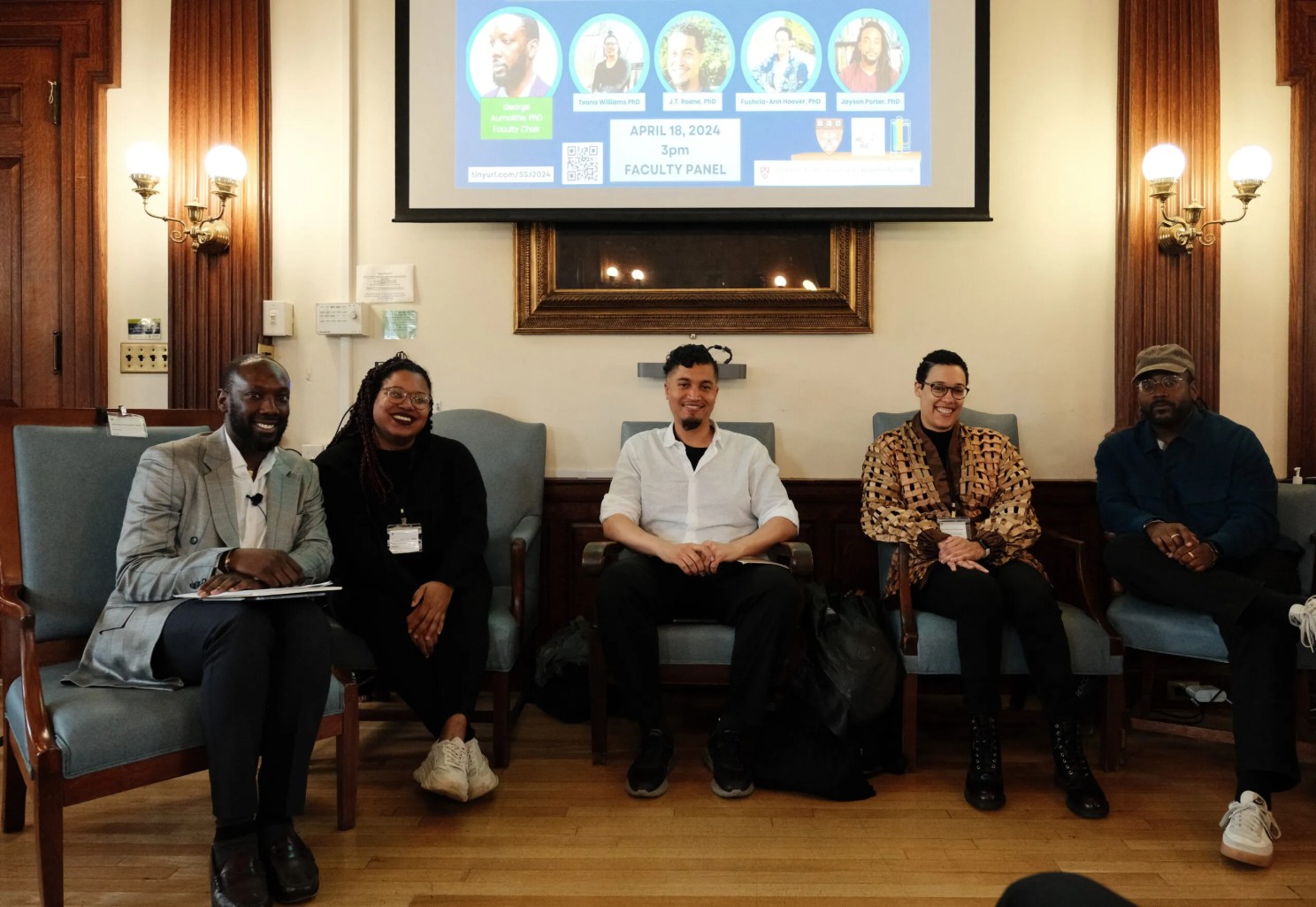Pursuing paths toward justice through Black ecology

Experts in the field of Black ecology share advice with aspiring researchers at the Ninth Annual Scholarship and Social Justice Conferences. George Aumoithe (picture from left), Teona Williams, J.T. Roane, Fushcia-Ann Hoover, and Jayson Maurice Porter.
Photo credit: Hugo Cardona
Black ecology celebrates the convergence of environmental and racial justice movements to uplift historically marginalized communities. At the Ninth annual Scholarship and Social Justice Conference, several scholars spoke about how their own personal and academic journeys influenced their work in this emerging field.
Centering Black voices in discussions about public lands and decision-making processes is a priority for Fushcia-Ann Hoover, an interdisciplinary researcher at UNC-Charlotte and founder of Eco Green Queen. She works to find synergy between racial justice and green infrastructure development by focusing on communities that have been historically marginalized by environmental planning processes.
Many exclusionary environmental policies and practices date back to slavery and Jim Crow laws. J.T. Roane, a historian based at Rutgers University, uses his scholarship to show how laws and policies have alienated and disconnected Black residents from the land over time. Roane works closely with Just Harvest, a Virginia-based organization that employs history, advocacy, and hands-on work to advance food sovereignty. Just Harvest brings attention to the root causes of hunger and poverty through community education programs.
First-hand experiences with environmental injustices have shaped each of the scholars’ journeys, but for Jayson Maurice Porter, it was a chance conversation with a professor at the University of Oklahoma that influenced him to pursue work through academia. After college, Porter operated a food distribution warehouse in Jackson, Mississippi. He recalled being asked by a professor if he would ever consider studying food instead of driving food trucks. One conversation led to another and Porter eventually discovered the field of environmental history, where his work as a scholar has taken him from studying racial ecologies in Mexico to co-designing the first environmental justice freedom school in collaboration with the Chicago Teachers Union. He is now a Presidential Postdoctoral Fellow in History at the University of Maryland.
For Teona Williams, a Presidential Postdoctoral Fellow in Rutgers University’s Geography department, her scholarly work was motivated by the damaging effects of extractive research during the Flint water crisis. Coming from a family with deep roots in the Mississippi Delta, she is driven to tell the hidden histories of Black land dispossession and traditions of resistance. Williams co-founded The Black Ecologies Lab at Rutgers University with J.T. Roane to center Black studies and communities. She explores how Black communities practice and sustain relationships with the environment while cultivating resilience in adverse situations.
Each scholar works at the intersections of racial and environmental justice to empower communities whose perspectives have been marginalized. Porter said he really valued the work outside of the classroom and said doing work in the community helped him to rebuild himself. Williams said she was motivated by a passion to write because “history really matters to my community.” The conference’s faculty chair, George Aumoithe, encouraged undergraduate research presenters from over 20 institutions to keep pursuing their scholarly ideas because it might someday bloom into future careers.
For more information about the Scholarship and Social Justice Conference, visit https://publicservice.fas.harvard.edu/ssj.




